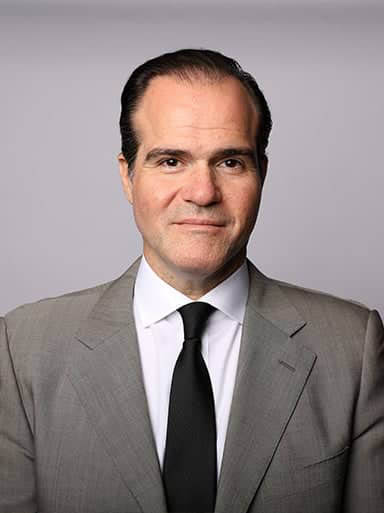Encouraging investment here as he pledged continued support for seeing Guyana become the “next Norway” in terms of development, IDB President Mauricio Claver-Carone on Monday said that this country should not be punished for discovering its oil and gas resources later than the rest of the world.
“We don’t control history we don’t control timing. Guyana and Suriname discovered [oil resources] in the 21st century. It is not our fault Guyana and Suriname discovered these resources in the 21st century versus the 20th century when it was ok and [other] countries benefitted,” the Inter-American Development Bank’s (IDB) President on Monday told a roundtable discussion with Caribbean journalists.
Claver-Carone noted that investment opportunities abound here and declared that the IDB stands ready to assist to ensure the developmental targets of the country are met while its people see tangible benefits.
“As I see stories about where people are focused, in the new political scale in regard to oil and gas, all eyes of the world should be on Guyana which is positioning itself to be the largest per capita oil and gas producer in the world. That is a tremendous opportunity which comes with tremendous amount of responsibility and we are working during this phase… with countries like Guyana.”
Listing the United States, Western Europe “the Middle East and elsewhere”, the IDB president said that some of those nations benefitted heavily from their exploits.
“So it is not our fault that now that Guyana and Suriname have discovered these resources in the 21st century when the rest of the world is moving towards transition; towards green energy; towards ensuring that they have the least climate impact possible and eventually zero climate impact.
It is why the IDB vows to assist Guyana, already a carbon sink, to ensure that its resources are developed in a sustainable way, as it moves to catch up on green global targets.
“What we are doing is helping Guyana and Suriname with this just transition …first and foremost is that its peoples are not punished because that would be unfair. In the same time helping with the energy transition both the sustainable goals how to ensure a country’s development is not punished -how to exploit these resources in a way that benefits its population, in a way that is sustainable and inclusive and at the same time; because we are literally doing something that has never been done before – walking and chewing gum – while at the same time helping Guyana and Suriname with that energy transition towards cleaner energy and the sustainable goals that Guyana and Suriname have committed to , in that regard,” Claver-Carone said.
“How do we do that? There are offsets. I think there are balances and we are literally creating an entire new structure of how to ensure that a country’s development is not punished because it discovered resources in the 21st century, while helping it at the same time undergo that transition in that regard,” he added.
Given that Guyana already has a democratic governance system, he remarked that he and the IDB are more inclined to support this country to ensure that a world standard is set on resource management and holistic development.
“… I am particularly interested in this issue because we have a once in a lifetime opportunity that we have not seen since Norway discovered its resource in the 20th century – to help a democratic country, in the case of Guyana and Suriname, but obviously we are seeing more in Guyana… of helping a democratic country truly ensure that those resources go to the development of the country and within that democratic structure, benefit its people in a sustainable fashion,” he asserted.
He opined that Guyana can be that stellar example of moving from a developing to developed nation.
“You would have the resources to be able to do so. And that is something we haven’t seen in Latin America and the Caribbean; that full transition in that regard. They will have the per capita resource to do so if managed well and if everyone can benefit from it. How do we do that? We have an opportunity here to help that country to take on that complete development path like Norway did. We want Guyana to be Norway. We don’t want it necessarily to be some of the Middle Eastern and African models that have actually seen development stalled with the new resources and democracy trampled in that regard,” Claver-Carone said.
He further contended, “Here our goal is for Guyana to be the Norway model. And if we can help them do that successfully, it will be the first time we see that in Latin America and the Caribbean; we can help a country through its entire development phase. We can do so … while walking and chewing gum; at a time while also helping it through its economic and green transition. Norway is now a champion in regards to green energy and sustainability. It is doable, it is possible… It is incumbent upon us to get it right.”
The IDB, its president said, is proud to be the largest financial partner of both Guyana and Suriname and it is “going to continue to work this way because we have the opportunity to do something special and unique and I for one am not going to give up on it.”
Guyana’s uniqueness in terms of its energy matrix was also highlighted as it was compared to countries in the Latin America and Caribbean region which had 20th century discoveries.
While not naming Venezuela, Claver-Carone said that some countries have “no great stories” on its management and will be remembered for the unsustainable way their oil and gas resources were used.
But Guyana, he believes, can be the example to the region where its income from the sector benefits its people and sister countries in a sustainable fashion.
